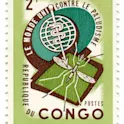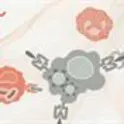
Life sciences
16 Jun 2015
Staff Pick: Extreme metal music and anger processing
Heavy Metal and related genres, such as Death-, Black-, Folk-Metal, or Metalcore, are often associated with aggression and even criminal offence.

Life sciences
16 Jun 2015
Heavy Metal and related genres, such as Death-, Black-, Folk-Metal, or Metalcore, are often associated with aggression and even criminal offence.

Life sciences
11 Jun 2015
The study used data from 4,450 US adolescents to probe why some students shun math-intensive fields. Believing that solving tough math problems requires innate abilities might discourage students, the researchers reasoned.

Life sciences
09 Jun 2015
By Nina Rothe Former Vice President of the Royal Geographical Society and Chair of the Expeditions and Fieldwork Division, polar expert Paul Rose is currently Expedition Leader for the National Geographic Pristine Seas Expeditions. He was the Base Commander of Rothera Research Station , Antarctica, for the British Antarctic Survey for 10 years and was awarded HM The Queen’s Polar Medal. For his work with NASA and the Mars Lander project on Mt Erebus, Antarctica, (which he climbed, of course!) he received the US Polar Medal. And he has a mountain named after himself in Antarctica. Happy World Oceans Day, Paul! When you think about the sea, what’s the first image, smell and sound that comes to your mind? Freedom, simplicity, adventure, promise! What has been the most important achievement in terms of ocean conservation in the past year and what do you consider the 3 most pressing problem(s) facing the world’s oceans right now? Raising the level of awareness to the extent that this is now a genuine sweet-spot for ocean conservation is a real success. For the first time in history, people understand that human activities directly affect the ocean’s health. The there most rousing problems are: overfishing, […]

Health
01 Jun 2015
Introducing the Global Day of Parents, the United Nations states that “The Global Day provides an opportunity to appreciate all parents in all parts of the world for their selfless commitment to children and their lifelong sacrifice towards nurturing this relationship

Health
28 May 2015
If you’re smoking right now, this means there’s a ten-percent chance of the following: either your cigarette has been legitimately manufactured in one nation and then smuggled into yours, or it has been illegitimately manufactured, often as a counterfeit item and often in a manner that doesn’t comply with health and safety legislation.

Health
25 May 2015
There are 200 million cases of malaria each year and 500,000 deaths, mostly among children under 5. Bednets, insecticides, and medication all help to control the disease, but complete eradication is a long way off.

Health
20 May 2015
Our Frontiers Editorial Office brought to our attention a couple of papers that are getting a lot of attention lately so we decided to write a short blog in honor of Mental Health Blog Day (#MHBlogDay) . The first is a paper on the association between depressive symptoms and physical diseases in Switzerland (read full paper). The objective of the paper is to estimate the association between the symptoms and physical diseases to estimate mental and physical health care costs in the future. The second paper that is growing in interest is The Grand Challenge by the SCE. The grand challenge paper is interesting because it’s the SCE’s reflection on the 2013 release of DSM-5 (Diagnostic and Statistical Manual which lists mental disorders). The paper looks at the impact psychiatric diagnoses have on the lives of the people and on the health care systems that support them. It also looks at how moving from the current categorical approach to diagnoses to a continuum approach could help solve some of the current problems. Have a great #MHBlogDay!

Neuroscience
23 Apr 2015
NEW RESEARCH TOPIC: Are you passionate about computational modelling of neuropsychological disorders? Do you research different levels of modelling (from spiking neurons to higher-level connectionist modeling ) using imaging and behavioral data? Then this topic is for you. “Neuropsychology through the lenses of computational modelling”, is a new Research Topic open for submissions in Frontiers in #ComputationalNeuroscience. Read more: https://lnkd.in/eBb3Wi9

Life sciences
22 Apr 2015
Urban Ecology is a new specialty section available through the community-run open-access journals Frontiers in Ecology and Evolution. “Urban ecology is highly interdisciplinary and there are very few journals that have the right scope for the most exciting new papers. Research in urban ecology can bring together disciplines as diverse as biology, physical science, engineering, social science, and urban planning and design. The new speciality section will be a great new venue for these papers.” – Diane Pataki, Specialty Chief Editor, Frontiers in Ecology and Evolution – Urban Ecology The Urban Ecology section invites submissions that advance our understanding of the structure, function, and dynamics of urban ecosystems from a diverse range of perspectives. Urban ecology is a broad ranging field that incorporates methods and perspectives from many disciplines to understand the complex components and processes of cities and settlements as well as interactions between human settlements and larger regions. We use the term “urban” broadly to refer to human settlements and their transitions over a range of scales and definitions, from local political and land use/land cover–based definitions to larger geographic boundaries and ecological footprints. Submissions related to biophysical as well as social processes in urban ecosystems are welcome, including studies of urban socioeconomic dynamics, […]

Life sciences
18 Feb 2015
This is Nina Rothe, Journal Manager at Frontiers. Nina’s from Berlin and has a PhD in marine biology from the University of Southampton. We’ve invited her to highlight her personal favorite paper from Frontiers. Read the paper (OA): http://fron.tiers.in/go/eMyoEc Rudd MA (2014) Scientists’ perspectives on global ocean research priorities Frontiers in Marine Science 1:36 … Nina writes: “In this paper, Dr Murray Rudd, from the University of York Environment Department, presents a survey that asked 2,197 scientists from 94 countries, who ranged in background from marine geologists to anthropologists, to state what research was needed most urgently to help sustain global ocean health. Among the most pressing issues, declines in ocean productivity, increases in ocean acidification, and the cumulative effects of multiple stressors on ocean health ranked in the top five ocean research priorities by oceanographers and marine ecologists from around the globe. Social scientists thought that better communication between scientists, policy-makers and the public was the most important research priority.”

Health
29 Oct 2014
A new Frontiers in Immunology Research Topic brings together the stories of those at the forefront of modern-day immunology “In the highly competitive world of biomedical science, often the rush to publish and to be recognized as ‘first’ with a new discovery, concept or method is lost in the hurly burly of the moment, as ‘the maddening crowd’ moves on to the next ‘new thing’. One of the great things about immunology today is that it has only matured as a science within the last half-century, and especially within the past 35 years as a consequence of the revolution of molecular immunology, which has taken place only since 1980. Consequently, most of those who have contributed to our new understanding of how the immune system functions are still alive and well, and still contributing. “‘A Living History of Immunology’ intends to collate as many stories as possible from the investigators who actually performed the experiments that have established the frontiers of immunology. Accordingly, we are after the ‘truth’, to combat ‘revisionist science’, by those who want to alter history by telling the stories a different way than actually happened. In this regard, one of the good things about science versus […]

Life sciences
02 Sep 2014
Your colleagues have hosted Research Topics spanning the breadth of plant science – many of which are now available as free ebooks! Frontiers Research Topics are collections of articles that bring researchers and their publications together to create a comprehensive online resource for the research community, highlighting recent developments and providing a forum for areas of novelty or debate. Browse the ebooks already available for Frontiers in Plant Science. If you have ideas for areas that could serve as the focus for a Research Topic in your discipline, please feel free to contact us at plantscience.topics@frontiersin.org Evolution of transporters in plants Edited by: Heven Sze, Angus S. Murphy, Markus Geisler The Brassica Genome Edited by: Xiaowu Wang, Michael Freeling Nuclear components and dynamics during plant innate immunity Edited by: Susana Rivas, Laurent Deslandes Application of Proteomics for Improvement in Crop Protection/Artificial Regulation Edited by: Setsuko Komatsu, Hans-Peter Mock, Pingfang Yang, Birte Svensson Cellular Iron homeostasis and metabolism in plant Edited by: Gianpiero Vigani, Khurram Bashir, Katrin Philippar, Jean-François Briat, Graziano Zocchi Arabidopsis 2010 and beyond – big science with a small weedEdited by: Andreas P. Weber Lignocellulosic feedstocks: research progress and challenges in optimising biomass quality and yieldEdited by: Maurice […]

Neuroscience
02 Apr 2014
On World Autism Awareness Day (April 2) we present a selection of popular open-access articles on advances and theories into autism spectrum disorders (ASD) The Intense World Theory – a unifying theory of the neurobiology of autism Frontiers in Human Neuroscience (Kamila Markram and Henry Markram (Co-founders of Frontiers and CEO and Editor-in-Chief, respectively)) The Intense World Theory considers autism as the consequence of a supercharged brain that makes the world more intense, which causes people with autism to develop strategies to cope. This review highlights key studies that support this theory and show how it can better explain past findings, and how it could resolve apparently conflicting data and interpretations. Autism: The Micro-Movement Perspective Frontiers in Integrative Neuroscience (Elizabeth B Torres, Maria Brincker, Robert W Isenhower, Polina Yanovich, Kimberly A Stigler, John I Nurnberger, Dimitri N Metaxas and Jorge V Jose) A new screening and tracking tool for diagnosing autism is detailed in this study. It measures an autistic person’s random movements and compares these to patterns seen in non-autistic individuals. The method could be used to diagnose autism sooner and allow earlier intervention. Network efficiency in autism spectrum disorder and its relation to brain overgrowth Frontiers in Human Neuroscience (John D Lewis, […]

Health
24 Mar 2014
To mark World Tuberculosis Day (24 March), Frontiers presents a selection of articles on the latest research, concepts and innovations in the field of TB. Resistance in tuberculosis: what do we know and where can we go? Frontiers in Microbiology (Keith D. Green and Sylvie Garneau-Tsodikova) Many strains of Mycobacterium tuberculosis are becoming increasingly drug-resistant. A mini-review covers how different M. tuberculosis strains resist anti-tuberculosis drugs and how these resistance mechanisms can be overcome. Current and Novel Approaches to Vaccine Development Against Tuberculosis Frontiers in Cellular and Infection Microbiology (Antonio Campos-Neto, Mark Cayabyab and Lilia Macovei) There is currently no vaccine available to protect adults against M. tuberculosis. This review focuses on the current strategies and innovations being explored to create an effective tuberculosis vaccine. The response of Mycobacterium tuberculosis to reactive oxygen and nitrogen species Frontiers in Microbiology (Iona Bartek, Martin I Voskuil, Gary K. Schoolnik and Kevin Visconti) This paper studies how M. tuberculosis responds to a number of damaging highly reactive oxygen and nitrogen species, one of the body’s primary defenses against M. tuberculosis infection. Functional characterization and evolution of the isotuberculosinol operon in Mycobacterium tuberculosis and related Mycobacteria Frontiers in Microbiology (Reuben J Peters, Francis M Mann, Meimei Xu and Emily K Davenport) This article attempts to understand the function of two M. […]

Health
28 Nov 2013
World AIDS Day, held every year on 1 December, is an opportunity for people worldwide to unite in the fight against HIV and AIDS. In this first of two blog posts dedicated to World AIDS Day, Frontiers presents a selection of articles on HIV and AIDS research. Eradication of HIV and cure of AIDS, now and how? Frontiers in Immunology (Jielin Zhang and Clyde Crumpacker) This paper proposes novel strategies to combat HAART (Highly Active Antiretroviral Therapy)-resistant HIV and reviews current HIV treatment strategies and their limitations. Association Study of Lipoprotein (a) Genetic Markers, Traditional Risk Factors and Coronary Heart Disease in HIV-1-infected Patients Frontiers in Immunology (Lander Egaña-Gorroño, Esteban Martínez, Tuixent Escribà, Marta Calvo, José M. Gatell and Mireia Arnedo) HIV and HAART drugs can interact with the body in many different ways. This paper examines how coronary heart disease affects HIV-infected patients compared to uninfected individuals. Immune activation and collateral damage in AIDS pathogenesis Frontiers in Immunology (Frank Miedema, Mette D. Hazenberg, Kiki Tesselaar, Debbie van Baarle, Rob J. de Boer and José A. M. Borghans) The body’s immune system response to HIV is the main driving factor behind the development of AIDS. This review lays out how a better understanding of the underlying mechanisms of immune activation may help facilitate […]
Get the latest research updates, subscribe to our newsletter